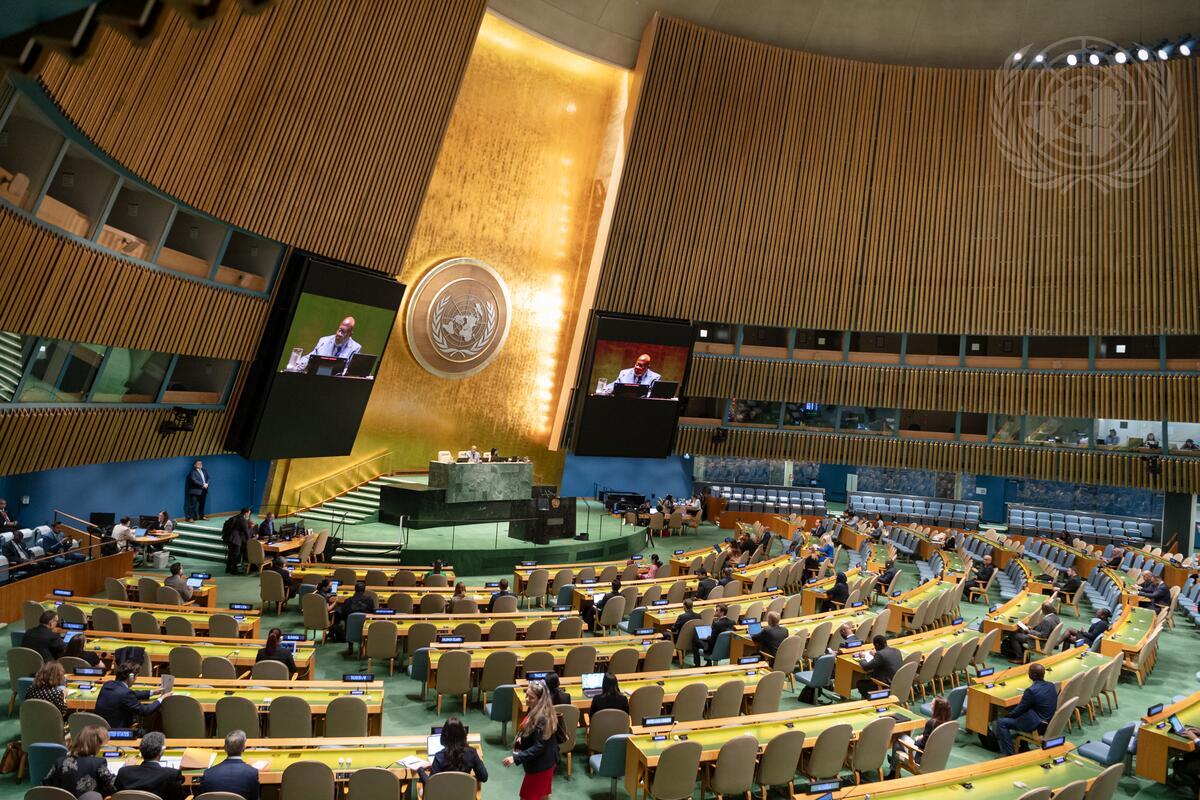Not infrequently it feels like that working in the field of human rights. As people around the world continue to experience profound violations, we are asked, and we ask ourselves, ‘what difference are we making?’. The starfish story is only a parable, but it has many true story parallels in the human rights movement; true stories in which committed individuals and coalitions – human rights defenders – are making a difference and having an impact against the odds. In just the first half of this year I’ve been fortunate enough to witness a number of such stories unfold. Here’s just a few.
A healthy environment; a healthy future
From promoting the elimination of plastic bags to opposing mass deforestation in the Amazon, environmental human rights defenders are working to prevent climate catastrophe and to protect plant, animal and human life around the world. Despite this, an estimated three defenders are killed each week, with those opposing environmental exploitation at particular risk and in need of particular protection.
Following sustained advocacy by ISHR and a coalition of more than 180 civil society partners, in March 2019 the UN Human Rights Council adopted a landmark international resolution contributing to such recognition and protection. The resolution provides a roadmap for governments, business and the UN itself to promote a healthy environment and to protect environmental human rights defenders.
‘We all want to breathe clean air, drink safe water, and to be able to provide sustenance and a healthy, dignified life for our families. Human survival and wellbeing rest on a biodiverse and healthy environment and a safe climate’, said my ISHR colleague Salma El Hosseiny following the resolution’s adoption by consensus. ‘Environmental human rights defenders help us to achieve that. Through this resolution, the Council recognises and celebrates their work. It will lead to more breathing space for defenders, and therefore for us all,’ she said.
With ISHR having strongly advocated that UN agencies themselves adopt specific policies on the recognition and protection of defenders, particularly those most at risk, I was therefore delighted with this month’s announcement by the UN Human Rights Office and the UN Environment Programme of a major new agreement to strengthen protection of environmental human rights defenders and their families.
From little things, big things grow…
Just like a small but determined girl made a difference to the stranded starfish, an increasing number of small and medium-sized States are showing how a principled and determined approach can make a difference to protecting victims and promoting accountability for perpetrators.
I’ve previously reflected on the leadership shown by Iceland in ending Saudi Arabia’s long enjoyed impunity for grave and systematic human rights violations, including the widespread arbitrary detention and torture of those who advocate dignity and equality for women and girls.
Perhaps inspired by this, the most recent session of the UN Human Rights Council saw ISHR and other civil society organisations collaborating with committed States to call to account a number of governments responsible for egregious human rights violations but long considered too powerful or strategically important for action to be possible. Iceland led the first ever resolution on extrajudicial killings in the Philippines. The Netherlands, Belgium and Luxembourg pursued accountability for individual victims of acts of intimidation and reprisal, including in Saudi Arabia. And around 25 States expressed collective concern in respect of China regarding widespread surveillance, restrictions to freedoms of religion and movement, and large-scale arbitrary detention of Uyghurs and other minorities in Xinjiang.
No problem is too big – and no government is too powerful – to be tackled and to be changed by committed individuals and coalitions.
Coordinated action; collective impact
If one young girl can make a difference, imagine the impact that hundreds or thousands of human rights defenders can make through coordinated and collective action.
In July I was privileged not to imagine but to witness exceptionally effective team work, as my ISHR colleagues Tess McEvoy and Helen Nolan worked with over 1,300 civil society organisations from 174 countries to secure the overwhelming adoption of a resolution, and the mandating of a mechanism, to combat violence and discrimination on the grounds of sexual orientation and gender identity. I was especially proud that so many of the national level advocates and activists who successfully pushed their governments to support the resolution were participants or alumni of ISHR’s Human Rights Defender Advocacy Programme.
There are many more large and small wins I’d love to share – from Chad committing to implement a specific national human rights defender law, to the passage of such a law in the House of Representatives in the Philippines, to legal experts affirming that discrimination against defenders should be prohibited under national law in the same way as discrimination on the grounds of race or gender. But the northern hemisphere summer is drawing to a close and it’s time for me to take a walk on the beach. Hopefully I’ll see you there.
Phil Lynch
Director, International Service for Human Rights
Photo: image.freepik.com, User 112905535




